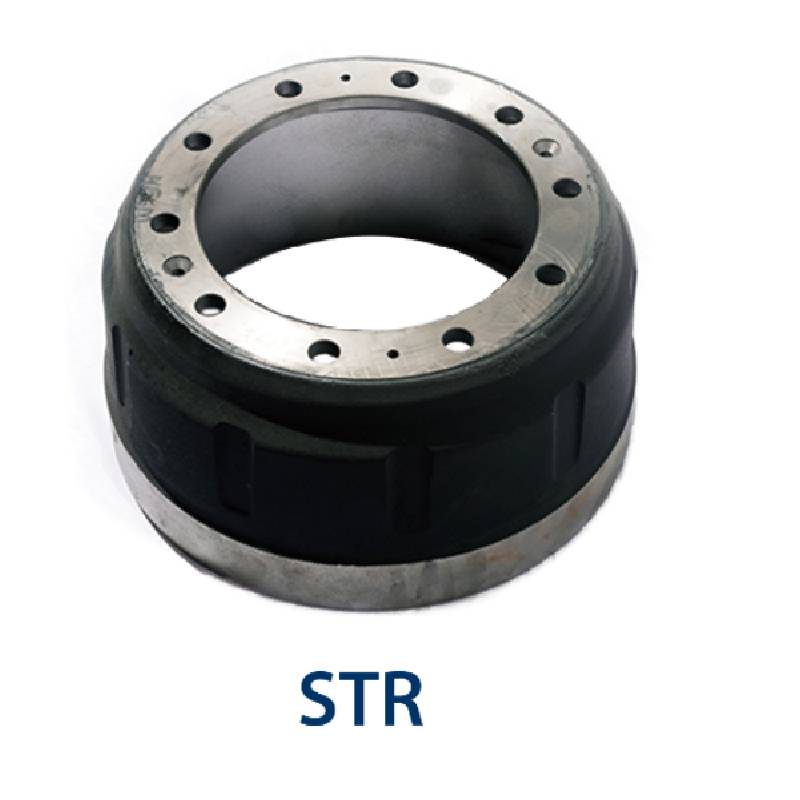Sep . 28, 2024 19:57 Back to list
Causes and Solutions for Squeaking Brake Drums in Vehicles
Understanding Brake Drum Squeaks Causes and Solutions
The sound of squeaking brake drums can be concerning for drivers, signaling potential issues within the braking system that need to be addressed. Brake drums are a critical component of the braking system in many vehicles, particularly those with rear drum brakes. They work in conjunction with brake shoes to slow down or stop the vehicle. However, the development of squeaking noises can indicate wear, improper installation, or other underlying problems. In this article, we delve into the causes of brake drum squeaks, their implications, and potential solutions.
Causes of Brake Drum Squeaks
1. Dust and Debris One of the most common reasons for squeaking brakes is the accumulation of dust and debris within the drum. Over time, dirt can mix with the lubricants used in the braking system, creating friction that leads to annoying sounds. Regular maintenance and cleaning can help mitigate this problem.
2. Worn Brake Shoes Brake shoes, which press against the drum to create friction, wear down over time. If they become excessively worn, they may not make proper contact, leading to squeaking noises. Inspecting the thickness of the brake shoes and replacing them when necessary is essential for maintaining noise-free operation.
3. Moisture and Corrosion Humidity and water exposure can lead to rust formation on the brake drum. When moisture settles on the surface, it can cause a temporary squeaking sound until the brakes heat up and the moisture evaporates. However, persistent corrosion can lead to more significant issues and should be addressed promptly.
4. Improper Installation or Adjustments If brake drums or shoes have been installed incorrectly, they may not function effectively, resulting in squeaking sounds. Ensuring that all components are installed according to manufacturer specifications is crucial for optimal performance.
5. Lack of Lubrication Squealing noises can also arise when there is inadequate lubrication on the contact points within the braking system. Lubricants help reduce friction between moving parts, and without them, squeaking is likely to occur. Regularly lubricating the appropriate areas during maintenance can prevent these noises.
6. Glazing of Brake Shoes or Drums Sometimes, brake shoes or drums can become glazed due to excessive heat from prolonged use. This glazing creates a smooth surface that can result in decreased friction and, consequently, squeaking. If this occurs, replacement of the affected components may be necessary.
Implications of Ignoring Brake Drum Squeaks
do brake drums squeak

Ignoring squeaking brake drums can lead to severe implications for vehicle safety. If the squeaking noise is accompanied by other symptoms, such as reduced braking performance or vibrations, it may indicate a more significant issue that requires immediate attention. Failure to address these problems can lead to brake failure, resulting in dangerous driving conditions.
Solutions to Squeaking Brake Drums
1. Regular Inspections Schedule routine maintenance to inspect your braking system. Checking the condition of the drums, shoes, and all related components can help identify potential issues before they escalate into larger problems.
2. Clean the Braking Components Regularly cleaning the brake drums and shoes can prevent dust and debris buildup. A simple cleaning can significantly reduce the occurrence of squeaks.
3. Replace Worn Parts If the wear on the brake shoes or drums is notable, consider replacing them. New components will not only operate more quietly but also enhance braking efficiency.
4. Lubricate Properly Ensure that all moving parts within the braking system are adequately lubricated. Use manufacturer-recommended lubricants to minimize friction and wear.
5. Consult a Professional If you are unsure of the cause of the squeaking noises, it's always a good idea to consult with a professional mechanic. They can diagnose the problem accurately and recommend the best solutions.
Conclusion
Squeaking brake drums can be more than just an annoying noise; they often signal underlying issues within the braking system. By understanding the causes of these sounds and taking proactive steps to maintain your brakes, you can ensure safer and quieter driving experiences. Regular maintenance, timely repairs, and professional inspections are essential in keeping your vehicle's braking system in top condition.
-
HINO Industrial Solutions - ¡Ң���ຽ��е��������˾ | Advanced Efficiency&Customization
NewsJul.13,2025
-
HINO Industrial Efficiency Solutions - ¡Ң���ຽ��е��������˾
NewsJul.13,2025
-
HINO Industrial Solutions - ¡Ң���ຽ��е��������˾ | Advanced Technology&Reliability
NewsJul.13,2025
-
HINO Industrial Efficiency-Jiangsu Hino Industrial|Productivity Optimization&Cost Reduction
NewsJul.12,2025
-
HINO-¡Ң���ຽ��е��������˾|Advanced Industrial Solutions&Energy Efficiency
NewsJul.12,2025
-
Premium Brake Drum Iveco – Durable Drum Brake Drum & Brake Shoe Solutions
NewsJul.08,2025
